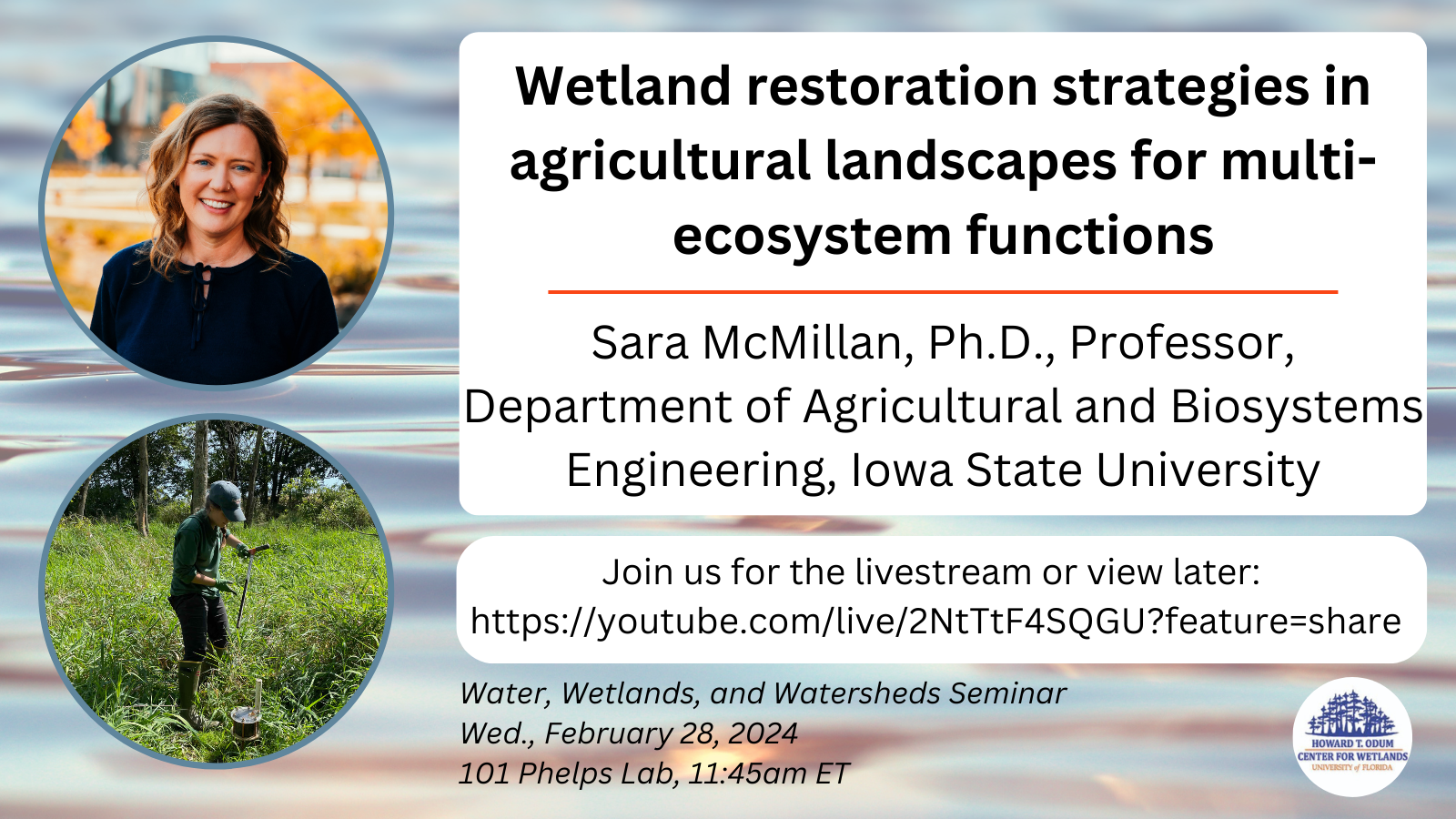
Sara McMillan, Professor, Department of Agricultural and Biosystems Engineering, Iowa State University
Join us for the livestream February 28th, 11:45am ET: https://youtube.com/live/2NtTtF4SQGU?feature=share
(Please visit our YouTube channel main page for the stream if there are any issues with the direct link.)
abstract
Sustainable and resilient agricultural landscapes are critical to food security for a growing population, but must maintain vital ecosystem services including mitigating the impacts of climate change and provisioning clean water and biodiversity. Wetlands are pivotal in achieving these goals. Yet, more than 85% have been converted to row crop production or urbanization in the Midwest. Wetland creation and restoration have become recognized as a solution for improving downstream water quality, buffering flood and drought risks of climate change, and supporting biological diversity because they have disproportionate impacts on these ecological services. But there is increasing recognition that wetland designs need to be optimized to strategically achieve the greatest benefit. We have been working on these questions linking restoration design to ecosystem outcomes in mesocosms, lab-based experiments, and field-based monitoring. Our work is demonstrating how vegetation in these wetlands can drive rates of nitrogen and carbon cycling, specifically denitrification and methanogenesis. This supports restoration and conservation efforts with stakeholders to design and manage wetlands to better balance water quality and climate outcomes.
bio
Sara McMillan is Ecological Engineering Professor in the Department of Agricultural and Biosystems Engineering at Iowa State University. She is also a Professional Engineer with expertise in river and wetland restoration, conservation practices in agricultural lands and stormwater management in cities. Sara’s research focuses on how humans impact water quality in rivers, lakes, and wetlands and how climate change will affect access to clean water, sustainable food production, and healthy ecosystems. She uses lab and field-based techniques along with modeling tools to develop solutions to environmental problems. Her current research focuses on restoring ecosystems to improve water quality including projects on agricultural conservation and restoration of wetlands, streams, and floodplains.
postcard
